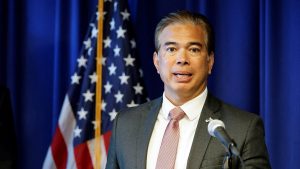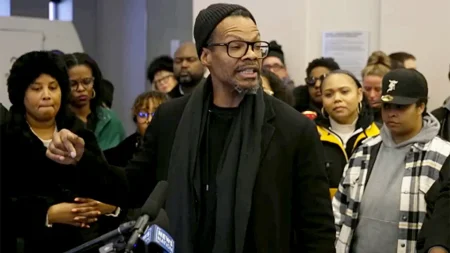A Nation Mourns: The Legacy of Charlie Kirk and America’s Political Crossroads
In a solemn gathering that bridged political divides, Erika Kirk stood before mourners at her husband Charlie Kirk’s memorial service and offered words of forgiveness to his assassin—a powerful testament to grace amid unthinkable tragedy. The memorial service became a momentary sanctuary from partisan battles, bringing together figures from across the political spectrum, including former President Donald Trump and entrepreneur Elon Musk. Trump praised Kirk’s enduring legacy and announced plans to posthumously award him the Presidential Medal of Freedom, honoring the conservative activist who founded Turning Point USA and became an influential voice among young conservatives. Kirk’s assassination has prompted national soul-searching about the increasingly dangerous political climate in America, with a former FBI agent warning that political attacks are evolving in nature and frequency, potentially signaling a troubling new normal in American civic life.
The FBI investigation into Kirk’s murder continues to develop, with investigators examining “signals” that may have preceded the attack and scrutinizing mysterious visitors observed near Kirk in the days before his death. The tragedy has become a unifying moment, albeit a painful one, bringing together conservative leaders and supporters in shared grief. Meanwhile, in an apparently unrelated but equally concerning development, a shop owner faces criminal complaints after posting an antisemitic sign declaring “Jews are banned”—underscoring the alarming rise in bigotry that many see as connected to the increasingly hostile political environment. These incidents reflect deeper concerns about the deterioration of civil discourse and the potential for rhetoric to inspire violence.
The nationwide sense of unease extends beyond political spaces into everyday American life, with commuters in major cities facing a surge in transit crimes that has made daily travel increasingly dangerous. Public transportation systems, particularly in urban centers, have become flashpoints where social problems manifest in ways that directly impact ordinary citizens. In schools, free speech controversies continue to simmer, exemplified by a high school student’s suspension after a dispute involving a MAGA hat. These incidents reflect broader tensions about expression, identity, and belonging in American society—themes that were central to Kirk’s political advocacy throughout his career, though his critics often viewed his approach as divisive rather than constructive.
On the international front, America’s relationship with China remains contentious, with Trump reportedly set to approve a TikTok deal ensuring majority American investor control of the platform’s U.S. operations. This move comes amid growing concerns about Chinese influence on American digital infrastructure and information ecosystems. Simultaneously, NATO allies are bracing for an uncertain future as tensions with Russia escalate, raising serious questions about America’s role in global security frameworks. These international challenges provide context for domestic political battles, including controversy surrounding a presidential statement criticizing an attorney general that was subsequently deleted and replaced with praise—highlighting the erratic communication that has characterized recent political discourse.
Media coverage of Kirk’s assassination has itself become a point of contention, with Representative Jasmine Crockett criticizing white lawmakers who voted to honor Kirk, while a member of “The Squad” engaged in a tense exchange with a CNN host over coverage of the killing. Senator Rand Paul pushed back against what he characterized as governmental overreach in policing speech following controversial remarks by an ABC host. The fractured media landscape mirrors the country’s political divisions, with outlets and commentators viewing the same events through dramatically different lenses. One Marvel star even warned that America is heading toward “Taliban” rule under a “fascist regime”—rhetoric that exemplifies the hyperbolic language increasingly common in political discourse.
As Americans grapple with these challenges, they also confront everyday concerns, from unusual thefts at tourist attractions to celebrating athletic achievements like a 336-pound Philadelphia Eagles player reaching jaw-dropping speed in a game-winning play. Cultural touchstones like “Pawn Stars” personality Rick Harrison discussing Las Vegas’s food scene offer glimpses of normal American life continuing amid political turmoil. Yet even these lighter moments occur against the backdrop of a nation struggling to define its future path. Charlie Kirk’s legacy, as remembered by Trump and conservative commentator Pete Hegseth, represents different things to different Americans—to supporters, he started a political movement that unleashed a spiritual revival; to critics, he embodied a polarizing approach to politics that widened rather than healed divisions. What remains clear is that America stands at a crossroads, with the response to Kirk’s assassination potentially determining whether the nation moves toward reconciliation or deeper division in the months ahead.











